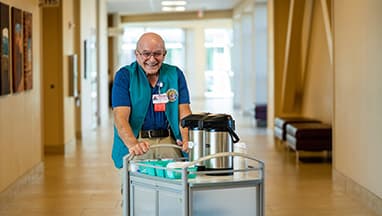Assessments and Reports
Community Health Assessments
In support of the patients, members and communities we serve, and as part of a requirement of the Patient Protection and Affordable Care Act, Presbyterian completed its first community health assessment in 2013 and updated the community health assessment in 2016, 2019, and 2022. By conducting a community health assessment every three years we identify the priority health issues facing each of our communities. As part of the community health assessment process, Presbyterian partners with local health councils and engages the community to help us better understand the key drivers of some of the health issues our communities face. In response to the growing community concern of over-assessment from multiple organizations, we established a new process for community health assessments and implementation plans through partnership with NMHealth. In 2024, PHS and NMHealth came together to form the Community Health Implementation Plan and System Alignment for Sustainable Action (CHIPS & SALSA) Collaborative. Through this collaborative, we aim to reduce duplication of assessment activities which leads to assessment fatigue, increase cooperation and collaboration between the varying organizations who conduct CHNAs, and align efforts to address our communities’ most pressing health needs.
Presbyterian is committed to community health improvement through community engagement, multi-sector partnerships, and sustainable impact. Community Health Implementation Plans and their impact reports accompany the Community Health Assessments. These reports, including the updated CHAs, are available for your review and comment.
To provide feedback on any of these documents or to request a printed or electronic copy, please contact the Community Health Team.
Health Assessments, Implementation Plans, and Impact Reports
Presbyterian historically defines the community as the 9 counties in New Mexico where we have hospitals, but in previous CHAs, we have concluded that many residents travel from neighboring counties to access care. Additionally, Presbyterian Health Plan has members within each county in the state. With that information, we will be including all NM counties in our CHAs for our next cycle in collaboration with the Community Health Implementation Plan and System Alignment for Sustainable Action Collaborative.
Community Health Priority Area Initiatives
Much of our work takes us out of the office and into the community. Our projects, initiatives and programs are supported by various partners and grants that fall into our health priorities including Behavioral Health, Social Health, and Physical Health and drive progress in access and equity. Read below to learn more about how we partner with our communities to impact health at the individual and family levels, through organization and community change, and through policy.
To open some of these files, you will need Adobe Acrobat



